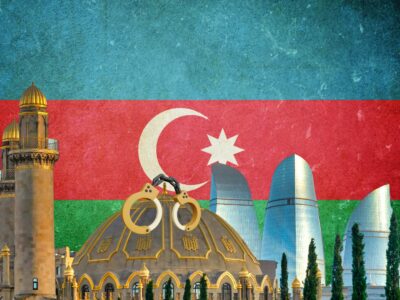In August 2003, ex-Liberian leader, Charles Taylor, was flown from Monrovia to Abuja on board a Nigerian Boeing 727 presidential jet. Taylor had just been granted asylum in Nigeria as part of a deal overseen by the African Union, the United Nations (UN) and the United States, which was aimed at ending the Liberian civil war. However, in June 2003, Taylor was indicted for war crimes by a UN court in Sierra Leone, and a warrant was issued for his arrest. The Nigerian government promised to hand Taylor over only when a democratically elected government was in place in Liberia.
January 2006: Ellen Johnson-Sirleaf was sworn in as the elected president of Liberia. On March 5, 2006, she requested for custody of Charles Taylor from the Nigerian government (according to information on the website of the State House, Abuja). On March 28, 2006, Charles Taylor was declared missing from his asylum villa by the Nigerian government. A day later, he was arrested trying to flee Nigeria. At the time of writing, he should be on his way to Liberia—the Nigerian government appears to have complied with the request of the Liberian government to finally hand him over.
The English-speaking blogosphere has been saturated with in-depth reports and commentaries on the ex-Liberian leader and indicted warlord. We take a look at some of these, written before it was reported that Mr. Taylor had been captured.
The blog GlobalLawAndPolitics laments in the article “The Rise and Fall of International Law in Africa–March 2006” about how “big men” of Africa continue to have their way, fueling a “culture of impunity and corruption that is eroding the continent.” It challenges African leaders to fulfill their human rights obligation by refusing to give refuge to Mr. Taylor.
Transitional Justice Forum describes Nigeria’s behavior following Liberia’s request for Taylor’s extradition as “erratic.” It calls on President George Bush not to go ahead with a meeting with the Nigerian president (scheduled for March 29, 2006) except Taylor is found and arrested.
Black Star Journal describes Taylor’s disappearance as “shock of shocks,” stating that Nigeria ought to have had Taylor arrested and put on a plane to Sierra Leone the moment Liberia requested for him. Africa Beat takes issue with the Nigerian president for failing to have Charles Taylor arrested before publicly announcing his intention to hand him over to Liberia.
Nigerian Times, appearing to have no sympathy for the government of the Nigeria boldly calls on the United States to hold the Nigerian president responsible for Charles Taylor’s disappearance. African Shirts in an article titled “Taylor varnishes” describes the entire situation as a “real muddle.”
David McCullough lashes out on Nigeria over Taylor’s disappearance. He appears disgusted by what appears to be “Nigeria colluding with Charles Taylor” and allowing him escape. McCullough puts Taylor in the class of war criminals like Radovan Karajic of Serbia and calls on “corrupt” Nigeria to clean up its act.
Following reports that Charles Taylor was captured and arrested by the Nigerian police on March 29, 2006, the blogosphere has also been filled with commentaries.
Parenthetical Remarks sums up the general feeling among bloggers in stating: “a bad day for former dictators turns out to be a good day for the rest of us. Taylor will finally get his day in court, likely followed by a lifetime behind bars, right where he belongs.” Mental Meanderings says that Serbia, which is still protecting people like Ratko Mladic could learn a lesson from Nigeria and hand over its war criminals.
Mansel Report sarcastically alludes to the fact that now that Charles Taylor has been arrested, the Nigerian president can expect to have a nice meeting with George Bush where “oil will be discussed…” and “the violence and death [in the Niger Delta region of Nigeria] will be brushed aside at least in private.”
The Counterterrorism Blog while pleased that Taylor was arrested by Nigerian security forces and is to be on his way to Sierra Leone, cautions the American government on its relationship with the Nigerian president calling for a ‘reevaluation of the close and dependent relationship” between Nigeria and the United States.
There are bloggers who see the request for Charles Taylor’s extradition as premature and indicative of pressure from more powerful governments. Grandiose Parlor finds the sudden change of heart by the Liberian leader puzzling. The Liberian president once saw Taylor as being of relatively low priority to her government.







3 comments